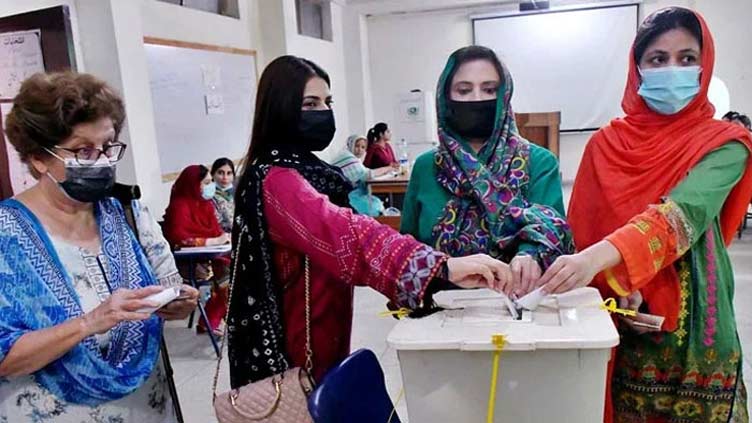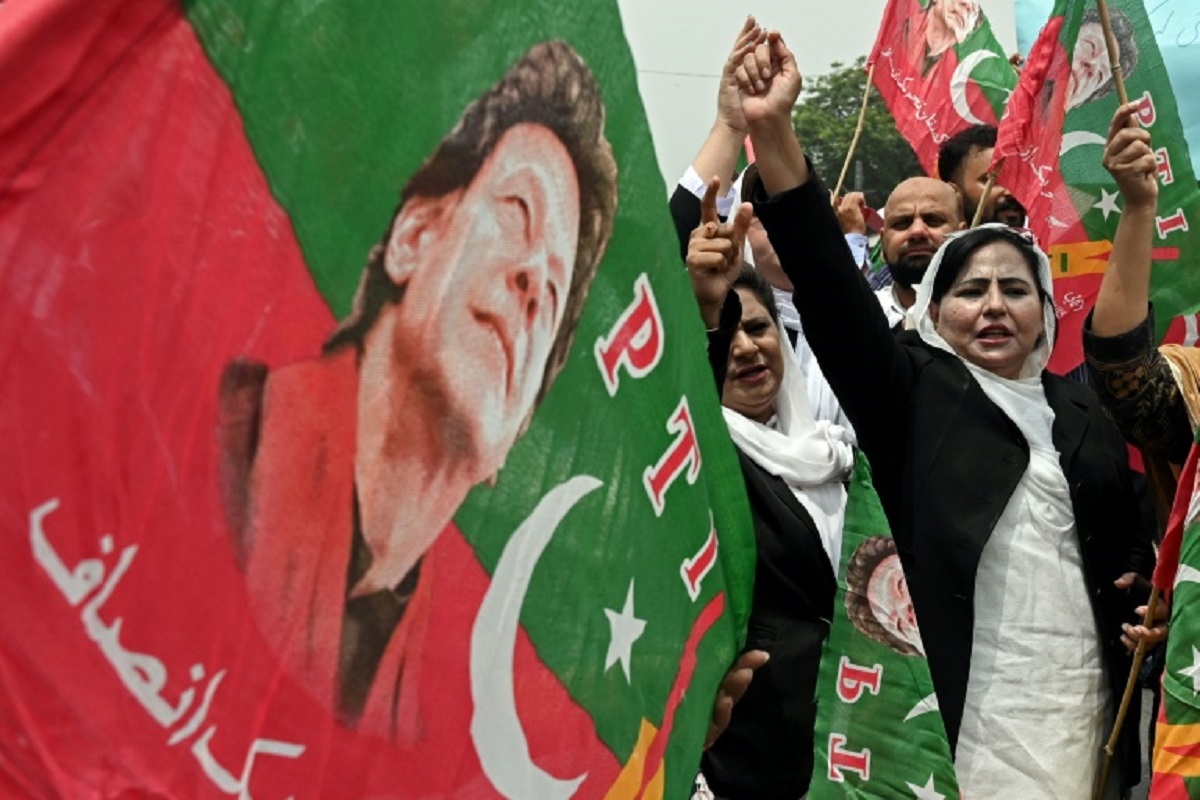Imran Khan, former Prime Minister of Pakistan, could not have dreamed for a better outcome from his prison cell. Just days before the country’s Feb. 8 election, the cricket legend-turned-populist politician was sentenced to more than a decade in prison for three fabricated charges.
Preliminary results from Pakistan’s election on Thursday appear to show that independent candidates affiliated with Khan’s Pakistan Tehreek-e-Insaf (PTI) party have a chance of securing a plurality of legislative seats, despite numerous irregularities that continued through polling day to stymie such an outcome.
The Election Commission stripped his party of its iconic cricket bat symbol, denying voters the ability to recognise the party on ballot papers—an important feature of voting in a country where 40% of the population is illiterate—and forcing its candidates to compete independently. Its members were beaten, imprisoned, and forced to join rival parties or leave politics entirely.
Cell phone signals went down on election day, and internet connectivity was severely limited. Following the election, there were widespread suspicions that many votes were stolen overnight, reversing seemingly insurmountable leads.
Despite all efforts to block them, Khan’s followers received the most votes and seats.

Independent candidates associated with Khan’s party, who won 93 of 295 national seats and one province outright, were denied the majority they claimed and may be barred from serving in government, but the vote marks a watershed moment.
A new generation of voters has evolved, concentrated in Pakistan’s thriving towns and cities, and they now seek a break with history.
These voters want to be able to choose their own leaders, rather than leaving the country in the hands of the powerful military, which has had a granitic grip on politics for most of its history.
When Khan fell out with the generals who put him in power and was removed from government in April 2022, his young fans staged massive, often violent protests.
Despite a brutal onslaught over the next two years, they persisted and demonstrated their opposition in the only method available to them: a peaceful, democratic vote.
Young voters’ drive to shape their own destiny may become a trend this year in the global south, as billions vote in at least 64 nations.
Pakistan has a young and expanding population. With the world’s fifth-largest population, nearly half of eligible voters are 35 and under.

Since the last election in 2018, 21 million more voters have registered. That trend will undoubtedly continue over the next few decades, as Pakistan is home to around 100 million people under the age of 18.
This is a generation of Pakistanis who have grown up believing that their country has long been denied its promise: buried in economic hardship, scarred by years of terrorism, ravaged by climate change, and disheartened by how their country is seen around the globe.
Many of these voters saw Khan as something new.
The strength of the PTI’s showing is a blow to Pakistan’s military, which fell out spectacularly with the former national cricket captain and plotted his downfall in an April 2022 no-confidence vote.
Since then, Khan has survived an assassination attempt and faced over 180 court challenges.
In recent weeks alone, he earned 31-year prison terms for corruption, exposing state secrets, and having a “un-Islamic” marriage.
Imran Khan and his wife in Pakistan sentenced to 14 years in prison on corruption charges.
However, his popularity remained high in the run-up to the election, particularly among young Pakistanis, who made up 45% of the roughly 130 million-strong electorate.
“It’s very clear that the military was nervous, and then to see PTI exceed expectations is absolutely a big blow,” says Michael Kugelman, director of the Wilson Center’s South Asia Institute.
Protests Erupt Across Pakistan Amidst Allegations of Rigging in General Elections
Protests Erupt Across Pakistan Amidst Allegations of Rigging in General Elections






